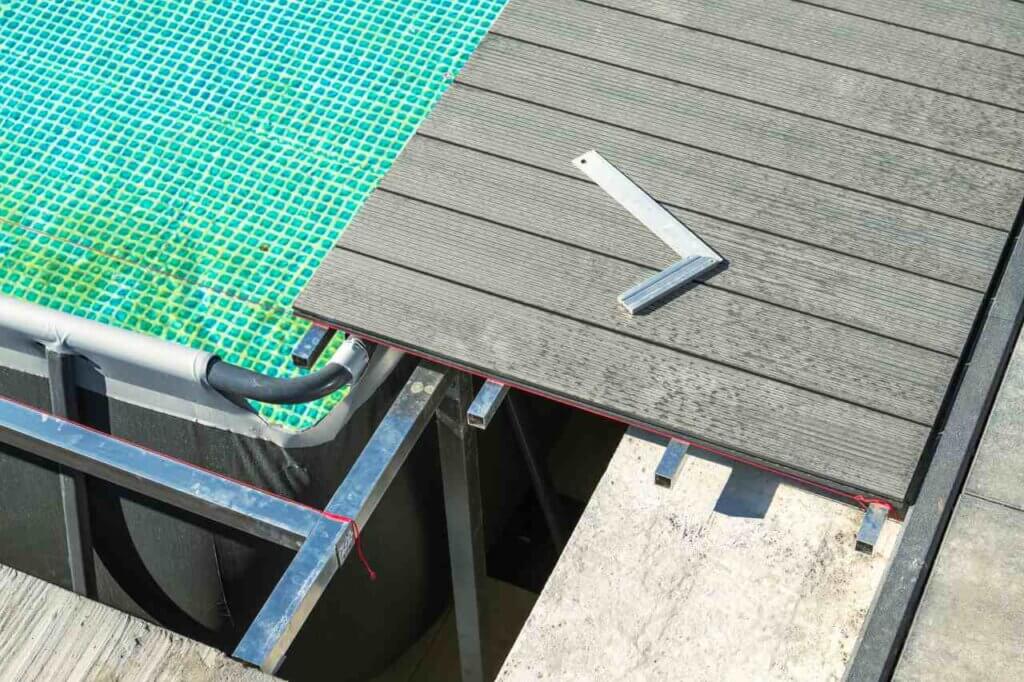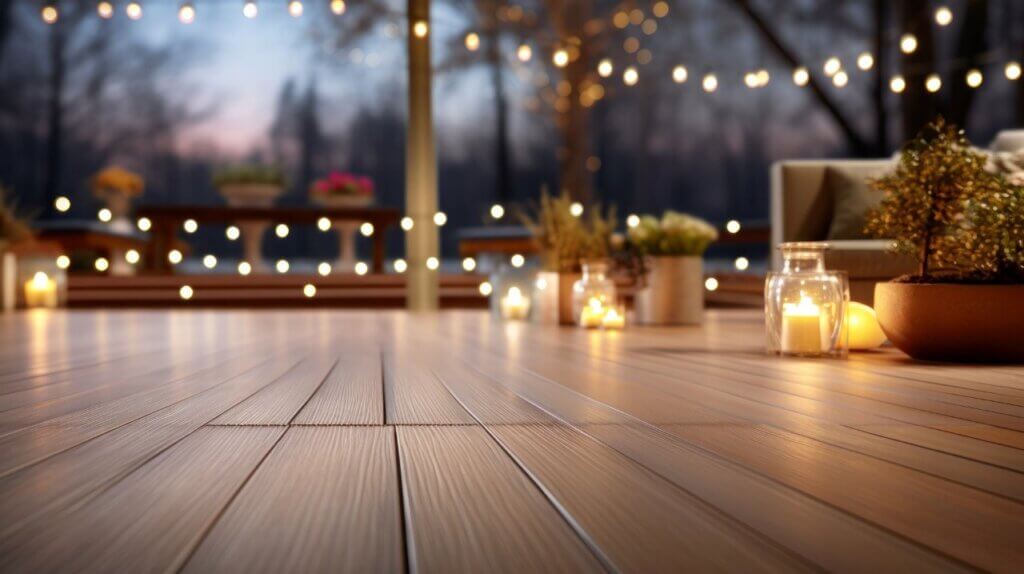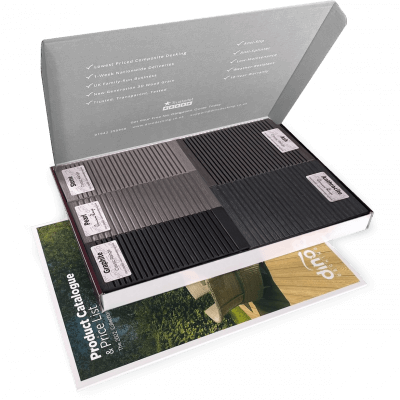5 Composite Decking Lighting Ideas
Our composite decking looks great in any setting, but you can really make your outdoor spaces shine with our decking
Products in Stock
Lowest Prices
Express Delivery
10-Year Warranty
Early April Sale. Up To 15% Off.

When you’re planning to build a deck, the material you choose can make or break your outdoor space. These days, PVC and composite decking are often the top contenders – but what’s the real difference between them? And which one’s going to give you the best bang for your buck?
Well that’s where we come in to help! Whether you’re a DIY enthusiast or just someone who wants a great outdoor space, we’re going to break down the key differences between PVC and composite decking in the blog below, so you can make an informed decision for your next project. Let’s dive in.
PVC decking is a fully synthetic option made entirely from plastic. It’s pretty much designed to look like wood without the maintenance headaches that come with timber. PVC is lightweight, resistant to moisture, and doesn’t splinter – a big plus if you’ve got kids or pets running around.
But there are some pretty heaavy downsides; PVC can get pretty hot underfoot on sunny days, and some people find it lacks the natural feel of wood. It’s also worth noting that while PVC is durable, it’s not invincible, and extreme temperature changes can cause it to expand and contract more than other materials.
Composite decking, on the other hand, is a blend of wood fibres and recycled plastic. It’s like the best of both worlds – the look and feel of wood, with added durability and less maintenance. And if you’re after cheap composite decking in UK, you’ll find it’s often more cost-effective in the long run than traditional timber.
Another one of the great things about composite is its versatility; it comes in a wide range of colours and textures, so you can really customise your outdoor space. Plus, composite decking is eco-friendly, often made with recycled materials. Read more about what are composite decking boards here.
Now that we’ve covered the basics, let’s take a look at what really sets these materials apart.
When you’re looking at upfront costs of composite decking, this tends to cheaper than PVC, despite PVC being less durable. Generally speaking, both materials generally work out cheaper than wood over time, thanks to their low maintenance requirements.
Both PVC and composite are pretty tough; they’re able to resist rot, warping, and insect damage better than wood. However, composite often has the edge in terms of UV resistance, meaning it will fade less in strong sunlight.

If you’re not a fan of spending your weekends sanding and staining, you’ll be happy with both PVC and composite; all you need is a bit of soap and water to keep your decking looking fresh.
Here’s where composite takes the lead: composite decking options are mostly made from recycled materials, making them a more eco-friendly choice. PVC, while recyclable, is not as green in its production process, and is made with synthetic polymers.
And finally, while both materials come in a variety of colours and finishes, composite often looks more natural; it can often more closely mimic the appearance of real wood, right down to the grain patterns. PVC, while improving, can sometimes look a bit too “perfect” to pass for real timber.
Don’t forget that we at Dino Decking offer free decking samples of all our composite decking colours, so you can even test out different aesthetics to see what looks best in your garden.
We’re not trying to be biased here (okay, perhaps just a little) but composite decking really has a lot going for it; it’s durable, low-maintenance, and often more aesthetically pleasing than PVC. It also tends to feel incredibly natural underfoot and doesn’t get as hot in direct sunlight as PVC.
Plus, if you’re after a more natural look and feel, composite is probably your best bet – not to mention that it’s also a great choice if environmental concerns are high on your list of priorities.
And while it might cost a bit more upfront than some PVC options, its durability and low maintenance requirements often make it more cost-effective in the long run.
So, if you’re thinking about choosing between PVC and composite decking, bookmark this article for reference before considering what elements are best for you. While PVC has its advantages, for many homeowners it’s clear that composite decking offers the best balance of aesthetics, durability, and eco-friendliness.
And at Dino Decking, we’re committed to helping you find the perfect decking solution for your needs. Whether you decide on PVC or composite, we’re here to guide you through the process and ensure you end up with a deck you’ll love for years to come. And as we mentioned above, you can also reach out to us for a free sample of our decking materials, so you can see exactly which material looks best in your garden.
Ready to start your decking project? Get in touch with us today, and let’s create your dream outdoor space together!

Our sample pack contains a sample piece of each colour currently available. Order your free sample pack today to compare the colours and get a true feeling of the Dino Decking range!
Our composite decking looks great in any setting, but you can really make your outdoor spaces shine with our decking
If the idea of having rats under your decking makes you shiver, don’t worry. We’ll let you know the signs
Business hours
Monday: 09:00 – 17:30
Tuesday: 09:00 – 17:30
Wednesday: 09:00 – 17:30
Thursday: 09:00 – 17:30
Friday: 09:00 – 17:30
Saturday: Closed
Sunday: Closed
Contact us
01942 355968
support@dino.co.uk
Collection Address: Unit 1 Wetheral Close Hindley Ind Estate Wigan Greater Manchester North West WN2 4HS
Pages
Products
Testing
Copyright 2025 Dino Decking Ltd All Rights Reserved.
VAT Number: GB296097848.
Company Number: 10837233.